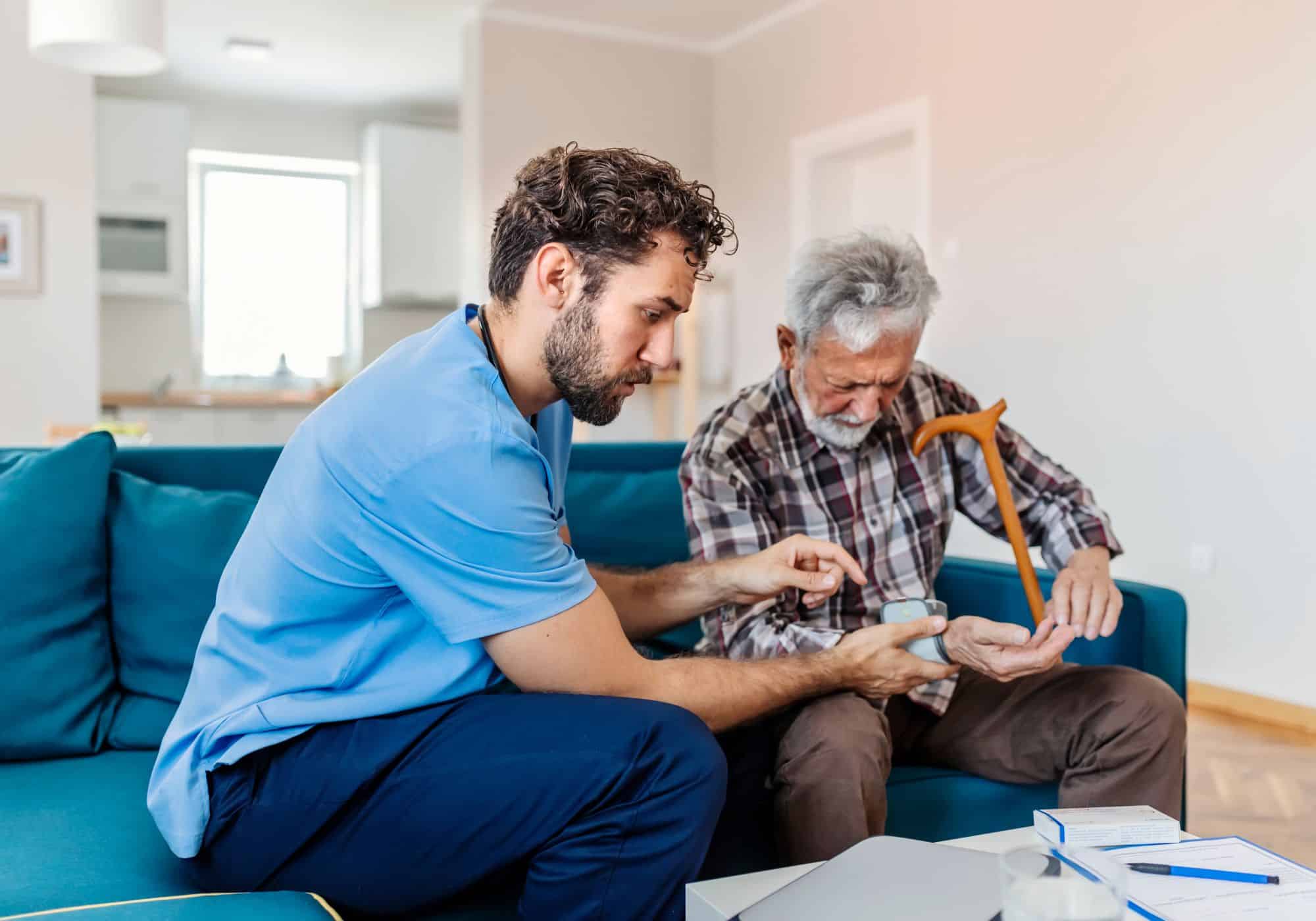Our Services
At Spasticity and Movement Partners of NJ, we provide personalized, evidence-based care for individuals living with spasticity due to stroke, brain injury, cerebral palsy, multiple sclerosis, and other neurologic conditions.
Our goal is to reduce pain, improve comfort, and restore as much mobility and independence as possible. We do this through a combination of medical expertise, advanced technology, and collaborative care.

Understanding Our Core Services
Comprehensive Spasticity Assessment
Every treatment plan begins with a detailed evaluation focused on function and individual goals. We assess:
- Severity and pattern of spasticity
- Underlying neurologic or musculoskeletal contributors
- Impact on range of motion, comfort, daily function, and mobility
- Personal goals such as walking, dressing, or reducing caregiver burden
We use clinical tools like the Modified Ashworth Scale, Tardieu Scale, and functional task analysis to guide decision-making with clarity and purpose.
Oral Medication Management
When symptoms call for it, we may prescribe oral medications to reduce widespread or more generalized spasticity. These include:
- Tizanidine
- Baclofen
- Diazepam
We monitor closely for side effects like drowsiness or weakness and adjust as needed to maintain balance between relief and function.
Targeted Injections with Ultrasound or EMG Guidance
We offer targeted chemodenervation to address specific muscle groups contributing to pain, stiffness, or functional impairment. Treatments include:
- Botulinum Toxin Injections: Botox, Dysport, Xeomin, and Myobloc are used to reduce nerve signaling at the muscle. Ideal for focal spasticity and muscles interfering with daily function.
- Phenol Nerve Blocks: Used for longer-lasting relief or when muscles no longer serve functional movement. Phenol chemically ablates targeted nerves and can be useful in severe or resistant cases.
- Diagnostic Nerve Blocks: Short-acting anesthetic blocks are sometimes used to distinguish between spasticity and contractures, and can be used to predict the effects of the injections listed above.
All procedures are performed using ultrasound and/or electromyography (EMG) guidance for safety and precision.
Intrathecal Baclofen Pump Management
For individuals with severe or widespread spasticity not well controlled by oral medications or focal treatments, intrathecal baclofen therapy (ITB) offers targeted relief. The medication is delivered directly into the spinal fluid through an implanted pump, allowing for better tone management with fewer side effects than oral medications. We provide:
- Pump refills
- Dose adjustments
- Troubleshooting for pump-related issues
- Coordination with neurosurgical teams when necessary
Our goal is to ensure that intrathecal therapy remains effective, safe, and aligned with each patient’s functional goals.
Multidisciplinary Care Planning
Spasticity treatment often benefits from coordination across specialties. We work closely with:
- Physical and occupational therapists to optimize movement and task performance
- Orthopedic and neurosurgeons for surgical release, tendon lengthening, or intrathecal baclofen considerations
- Neurologists for underlying neurologic disease management
Above all, we keep the patient’s care at the center of the plan, whether the goal is walking again, reducing pain, easing caregiver demands or simply making mornings easier.
Goal-Oriented Tracking and Reassessment
Treatment success is not just about muscle tone, it’s about what patients can do. We track progress based on:
- Functional goals (e.g., walking distance, transfer ability, dressing time)
- Caregiver reports
- Range of motion and postural improvements
- Pain reduction and quality-of-life feedback
We use structured tools, including the Goal Attainment Scale (GAS), to ensure that progress is meaningful and measurable.
Ready to Move Forward?
If you or a loved one is living with spasticity, we invite you to schedule a consultation. Together, we can build a treatment plan that is practical, evidence-based, and centered around what matters most to you.
What to Expect at Your First Visit to the Spasticity Clinic
Your first visit is all about getting to know you: not just your symptoms, but your story, your interests, the movements and activities that have been difficult lately, and what you are hoping to improve.
We begin with a detailed conversation about your current challenges and your medical history. From there, we perform a physical exam to better understand the patterns of spasticity and what may be contributing to it. We also observe how you move, including how your arms and legs function during daily tasks, and how you walk. In some cases, we may take a short video to help track your progress over time and guide future decisions.
After we gather this information, we discuss your goals. For some individuals, that means walking more easily or dressing with less assistance. For others, it may be reducing pain, preventing complications, or making daily care more manageable. The goals are personal and unique to each person. There’s no one-size-fits-all answer and it depends on what matters most to you.
Together, we create a personalized treatment plan. This may include physical or occupational therapy recommendations, a home exercise program, a test injection (using a short-acting anesthetic), focal muscle or nerve injections for longer-term relief, medications, or even surgical options if needed. Each plan is tailored to your needs, your timeline, and designed to fit your life.
Learn more about the treatment options we offer.
Setting Goals & Measuring Progress
When we set meaningful goals together, we create a clear plan that fits your unique needs and supports your personal journey toward recovery.
How We Identify What Matters Most to You
We start by understanding who you are, not just your diagnosis. Your personality, interests, daily routines, relationships, and emotional well-being all shape how spasticity affects your life. These details help us understand the context for your comfort, pain, functional priorities, and level of independence.
Alongside your priorities, we also draw on our clinical expertise to highlight goals that are important for long-term health, such as preventing complications or preserving range of motion.
How We Shape Goals Together
Together, we shape your goals using the SMART framework. We make sure they are Specific, Measurable, Achievable, Relevant, and Time-based. This helps ensure that each treatment session has a clear direction and that progress can be meaningfully tracked.
We spend time turning broad hopes, such as “I want to walk better,” into clear, measurable steps. At the same time, we balance what matters most to you with what is realistically achievable at your current stage of recovery.
How We Track Progress
Tracking progress helps us understand what is working and helps you stay motivated. Similar to how airline companies offer tiered rewards goals, we set smaller, achievable steps that build toward your bigger outcomes.
We use a tool called the Goal Attainment Scale-Light (GAS-Light) to track your progress We mark your starting point as (-1 or -2), depending on where you are beginning, and set your desired outcome as (0). At follow-up, we assess whether you have reached that goal (0) or gone even further (+1 or +2).
For example:
- Starting point: “Requires total (100%) assistance for axillary hygiene” → scored as (-2)
- Goal: “Achieve moderate (50%) assistance for axillary hygiene within 6 weeks” → scored as (0)
- If the patient reaches minimal (25%) or no assistance within 6 weeks → scored as (+1 or +2)
Progress is not a straight line, and we want to avoid giving that impression when using this scale. GAS-Light is not about passing or failing. It is a way to learn what is working. If a goal is not fully met, that is valuable information. It may mean the treatment needs adjusting or more time is needed. Even small gains are recognized on this scale, and they help guide the next step in your care.

How We Stay Motivated Together
Motivation is easier to maintain when your goals feel both meaningful and attainable. We work with you to set goals that matter to your daily life, and that feel within reach.
Along the way, we encourage a mindset that sees progress as a journey, not a straight line. Setbacks are part of learning. It’s easier to stay engaged when goals are flexible and grounded in your values, even when things don’t go exactly as planned.
Our Approach
The team at Spasticity and Movement Partners works with you to improve your movement and daily function by setting meaningful goals, providing tailored treatments, and guiding you through a recovery plan you can trust.
Focused
Outcomes
We set clear, achievable goals with you. Whether it's buttoning a shirt or walking to the mailbox, we use proven methods to turn your hopes into meaningful results.
Comprehensive
Support
We consider all aspects of your well-being, including emotional health, social connection, and the needs of those who help you day to day. Your progress is our mission.
Collaborative
Tracking
We measure progress that matters to you. Using tools like the Goal Attainment Scale-Light, we track real improvements and adjust care based on what works.
Continuous
Care
Recovery isn’t one-size-fits-all. We revisit goals often and adapt care as movement improves. Your plan grows with you, guided by a team that stays by your side.
